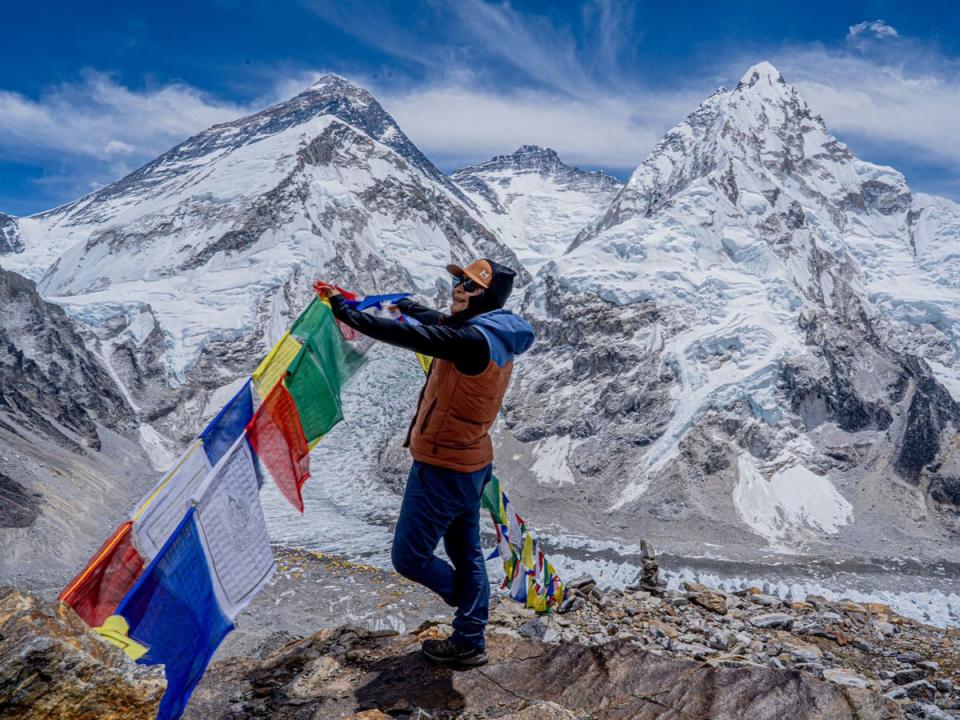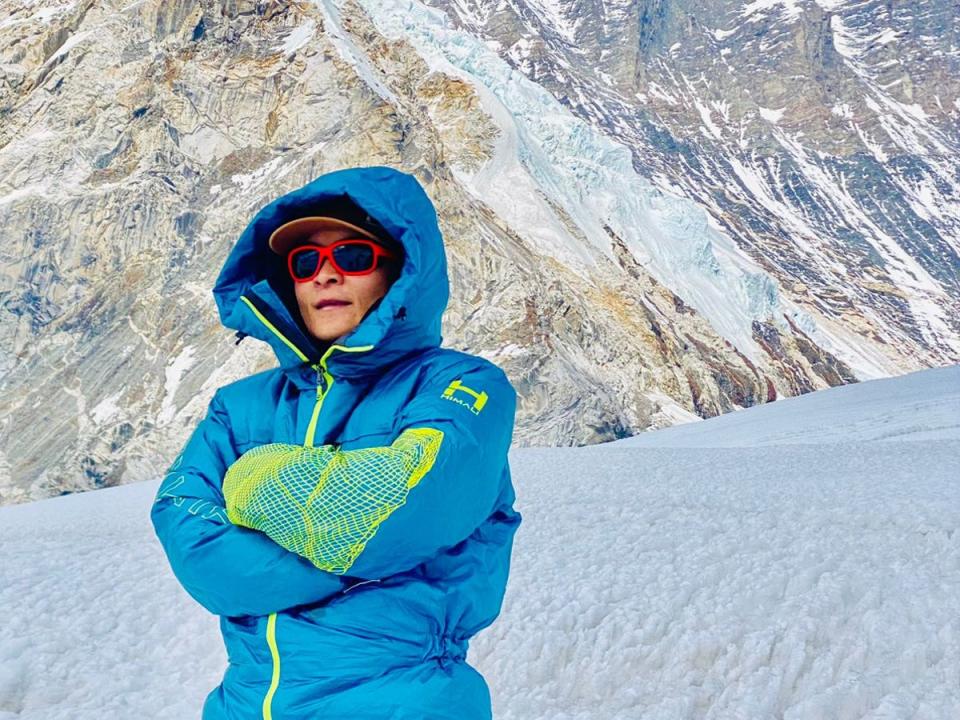Phunjo Lama, fastest woman to scale Everest, recounts a triumph fuelled by love

The first person she called after reclaiming the record as the fastest woman to scale Mount Everest was her 12-year-old daughter.
Phunjo Lama, 32, the Nepali mountaineer who climbed the world’s highest peak in less than 15 hours last week, returned to the base camp exhausted but excited, and called her daughter to share the news.
“Yo girl, you did it,” her daughter told her on the phone.
The young girl also made a promise to her: one day she will break her mother’s climbing record.
“She is also a climber, she loves mountains,” Lama says about her daughter.
Lama came to worldwide attention in 2018 when she became the fastest woman to scale the Himalayan peak in 39 hours and six minutes. Her record was broken in 2021 by Ada Tsang Yin-hung, 45, from Hong Kong who climbed the peak in 25 hours and 50 minutes.
This year, Lama reclaimed the record. This win is important to her because she says her goal is to tell more women that “anything is possible”.
“I feel proud,” she tells The Independent from Kathmandu, Nepal.
She emphasises that women can accomplish any challenging task. “But women, you know, we are human too. We can do it, we can climb mountains. Some men think otherwise but as a guide I’m always trying to tell them and assure them that everything is possible.”
After her accomplishment, Lama says she has received many congratulatory messages from people in the mountaineering community for which she feels “happy” and “blessed”. But she is keen to play it down too.
“I feel very normal, you know.”
Her achievement is by no means “normal”, though.
For most mountaineers, even elite ones, it takes days to climb to the summit from the Everest base camp. She did it in 14 hours and 31 minutes.
Growing up, motherless, in a remote village called Chhokangparo in the Tsum Valley of Nepal’s Manaslu region, Lama would often accompany her grandfather to nearby mountains, climbing as high as 5,000 metres. Everest stands at 8,850 metres.

She was two when she lost her mother. Her trips to the mountains with her grandfather and a yak is an enduring memory from her childhood.
“Mountain is my home,” she says.
“Yeah, the mountain is my home,” she repeats herself after a brief pause.
Lama has trained in the Swiss Alps and Nepal’s Himalayas. She is the first female helicopter longline rescuer in Nepal and has been awarded the Tenzing-Hillary Award by her country.
But Lama is nonchalant about her accomplishments and fame. She is aware of the risks of mountaineering, so there’s a small ritual she follows every time she leaves home for a mountaineering expedition.
She is a single parent to her 12-year-old daughter. Before every climb, Lama sits her down and tells her that she might not come back from the mountains alive.
“I always encouraged her to be confident and independent,” she tells me. “I told her that if something happened to me on the mountain, she shouldn’t be sad because I was doing something I loved. She understands this and is ready for whatever comes, whether I come back or not.”
“She’s like my friend, you know. We share everything and she supports me.”

Last year was the deadliest for Everest climbers, with at least 18 dying on the mountain. This season, at least five people have died and three are missing and presumed dead.
Nepal’s government has faced criticism for issuing too many permits to climbers, leading to overcrowding on the mountain.
Lama believes climbers attempting to summit Everest need to have some experience. “As guides, we are very happy about the number of people coming to our mountains. However, climbers need proper experience and training, and they must choose the right company and leader,” she says.
“Climbers need to have extensive experience and come with respect for the mountain. Otherwise, nature will kill any time.”
In the face of the climate crisis melting the Himalayan glaciers and overcrowding choking routes up the world’s highest peak, Nepal is reportedly reviewing the need to shift the base camp elsewhere.
Lama says the amount of snow has decreased significantly compared to her childhood. “I feel very sad about this.”
“The government needs to be aware of how we can protect the mountains,” she says.
“If we don’t take action now, in four or five years, we will face big problems.”


